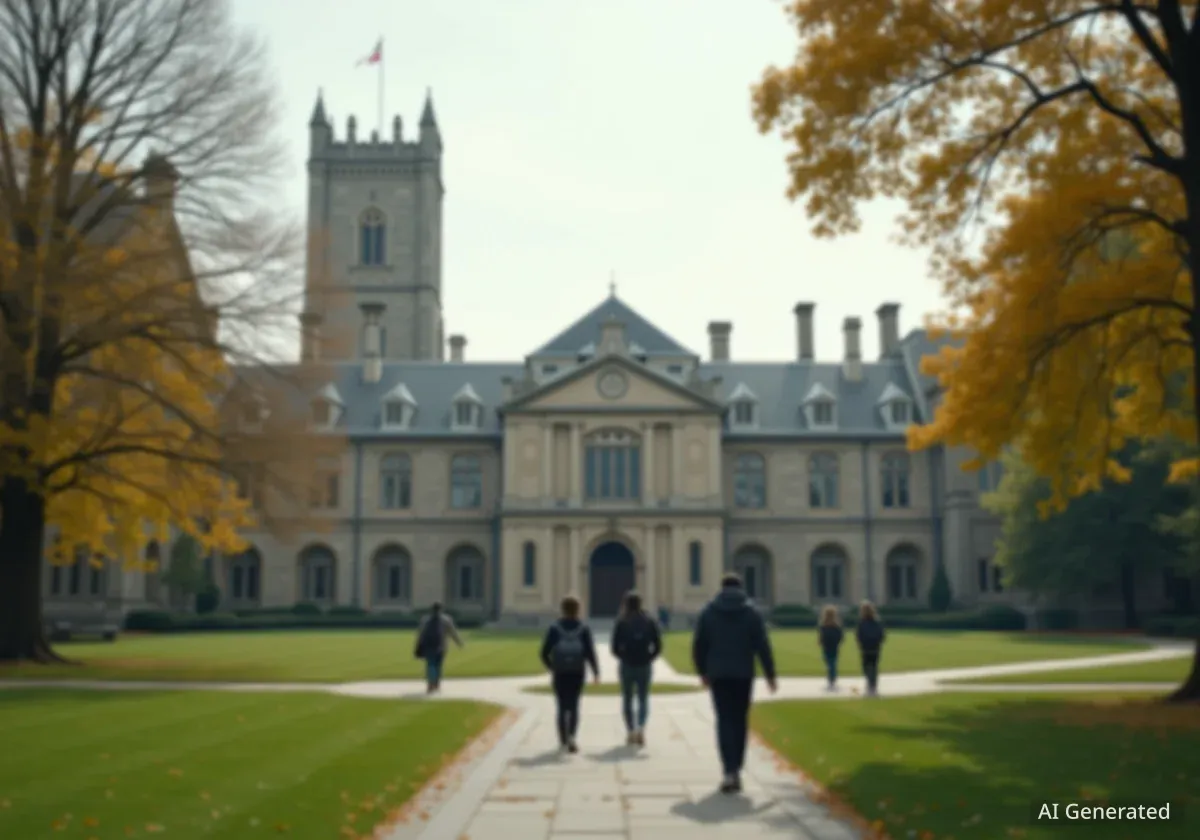Clark University has received a $20 million donation from alumnus Ron Shaich, the founder of the popular restaurant chain Panera Bread. The gift, made through the Shaich Family Foundation, is the largest single donation in the Worcester-based university's history.
The funds are designated to support a comprehensive restructuring of the university as it adapts to the evolving landscape of higher education. This landmark contribution marks a significant moment for the institution, coming from an alumnus whose entrepreneurial journey began on its very campus.
Key Takeaways
- Ron Shaich, a 1976 Clark University graduate and founder of Panera Bread, has donated $20 million to his alma mater.
- This represents the largest single gift ever received by the university.
- The donation is intended to support a strategic plan to restructure the university amid challenges facing higher education.
- Shaich's business career started with a small convenience store he operated for students on the Clark campus in the mid-1970s.
A Historic Gift for a New Era
The $20 million contribution from Ron Shaich and his family foundation sets a new philanthropic record for Clark University. University officials have confirmed that this is the largest individual donation the institution has ever received, providing a substantial boost to its strategic initiatives.
The funds are earmarked to help implement a forward-looking plan designed to reshape the university's academic and operational models. This initiative aims to address the widespread challenges confronting higher education today, including shifting student demographics, rising costs, and the need for curricula that prepare graduates for a rapidly changing workforce.
This significant financial injection will empower the university to accelerate its plans, ensuring its long-term viability and competitiveness. It allows for investments in new academic programs, faculty development, and enhanced student experiences that are central to the university's vision for the future.
From Campus Store to Boardroom
Ron Shaich's connection to Clark University runs deep, extending back to his undergraduate years in the mid-1970s. Before he built a nationwide restaurant empire, Shaich demonstrated his entrepreneurial spirit by starting a small convenience store on campus to serve fellow students.
This early venture provided a foundation for the business acumen that would later lead to the creation and expansion of Panera Bread. His journey from a campus entrepreneur to a titan of the fast-casual dining industry serves as a powerful example for current and future Clark students.
The donation is not just a financial transaction but a vote of confidence in the university's direction and leadership. It highlights a powerful narrative of an alumnus giving back to the place where his career first began to take shape.
Navigating the Future of Higher Education
The challenges facing private universities like Clark are multifaceted. Institutions across the country are grappling with declining enrollment, questions about the value of a traditional degree, and intense competition for students and resources. Clark's strategic restructuring plan is a proactive response to these pressures.
While specific details of the plan are still being rolled out, the university has indicated it will focus on several key areas:
- Curricular Innovation: Developing new interdisciplinary programs that align with emerging industries and societal needs.
- Experiential Learning: Expanding opportunities for internships, research, and community-based projects to ensure students gain practical skills.
- Financial Accessibility: Enhancing scholarship and financial aid programs to attract and retain a diverse student body.
- Operational Efficiency: Streamlining administrative processes to ensure resources are directed toward the core academic mission.
Shaich's donation is expected to be a catalyst, enabling the university to implement these changes more rapidly and effectively than would otherwise be possible.
The Impact of Philanthropy on University Transformation
Large-scale donations play a crucial role in the evolution of academic institutions. They provide the capital necessary for bold initiatives that tuition and endowment returns alone cannot always cover. For Clark, this $20 million gift is transformative, offering the freedom to innovate and invest without compromising its financial stability.
In a statement, the university expressed deep gratitude for the donation, highlighting its potential to secure Clark's position as a leader in liberal education for generations to come. The gift is seen as an endorsement of the university's strategic vision and its commitment to providing a relevant and impactful education.
"This extraordinary act of generosity will reverberate across our campus for decades," a university spokesperson noted. "It allows us to be bold and creative in how we prepare our students for a complex world, ensuring that a Clark education remains a powerful engine for opportunity and positive change."
The donation also serves as an inspiration for other alumni and donors. A gift of this size often encourages further philanthropic support, creating a ripple effect that can significantly multiply its initial impact. It signals to the broader community that the university is on a strong trajectory and worthy of investment.
As Clark University embarks on this new chapter, the support from one of its most successful graduates provides not only the financial means but also a powerful story of legacy and belief in the institution's enduring mission.





